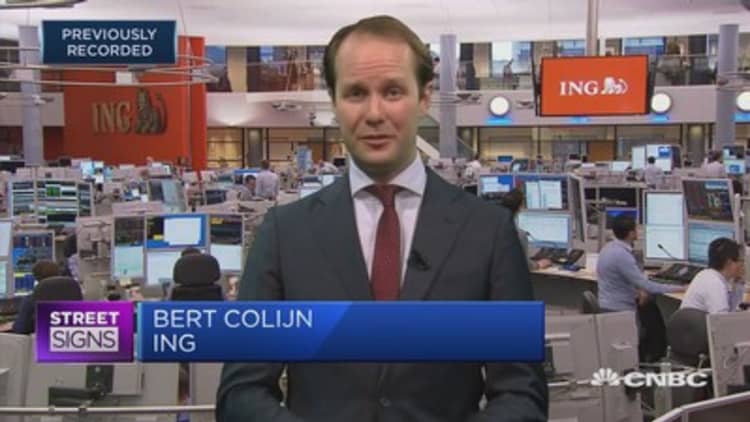The euro could strengthen to $1.16 throughout 2020 thanks to an economic recovery in Europe, lower political risks, and no significant policy change from the European Central Bank (ECB), currency strategists at Nomura bank said Friday.
The euro, used in 19 European countries, was trading at $1.11 on Friday. The euro lost value against the dollar throughout 2019, trading lower on news about international trade, tepid economic data and perceived political risks. In September, the euro dropped to $1.09 as investors questioned the economic prospects of Germany, changes in the Italian government and whether the ECB would be announcing further monetary stimulus.
As a new year begins, strategists at Nomura believe that the euro will make up for some of last year's losses. "We remain constructive on (the) euro into 2020, as a cyclical upturn should keep the single currency supported," the bank said in a research note Friday.
Nomura said European data should pick, the ECB is not expected to alter its current policies, there is room for some positive reforms, capital outflows are falling and there are lower political risks.
"We expect EUR/USD to trade at current levels and approach 1.16 by end-2020, with risks to the upside if the U.S. Presidential election leads to a USD negative surprise," strategists at Nomura also said.

Currency experts at Bank of America Merrill Lynch are also expecting the euro to strengthen going forward. "We expect stability in euro zone data, weakening in U.S. (data) and less tail risks to support (the) euro in 2020," strategists said in a note Friday.
Roberto Mialich, a currency strategist at UniCredit Research, also told CNBC Friday that the euro-dollar pair is set to rise to $1.16 by the end of 2020.
This increase "would not be dramatic enough to alarm the ECB," he said via email. "If the (Federal Reserve) remains steady on rates over the course of 2021, this would likely mean some consolidation, leading to EUR-USD rising slightly to 1.18 at the most by the end of the year."
However, other analysts are less bullish on the euro.
"We have a rather flattish profile for EURUSD over the coming year and to be honest we are fairly downbeat," Stephen Gallo, head of forex strategy at the Bank of Montreal in London, told CNBC via email Friday.
"Some portions of the economy have been resilient, but in other respects (the) euro zone is still very beholden to global trade developments due to dependence on external demand," Gallo said in a note released earlier this month.
Between 2008 and 2018, total euro area trade with non-EU countries increased at an annual average rate of 3%, data from the European statics office showed.


